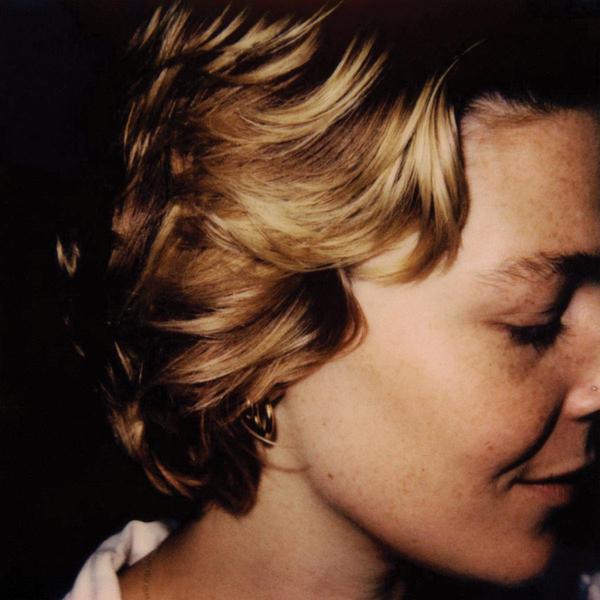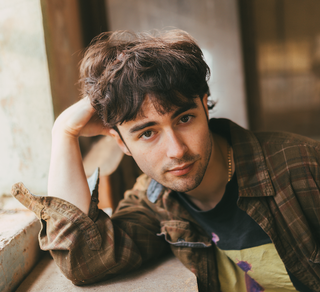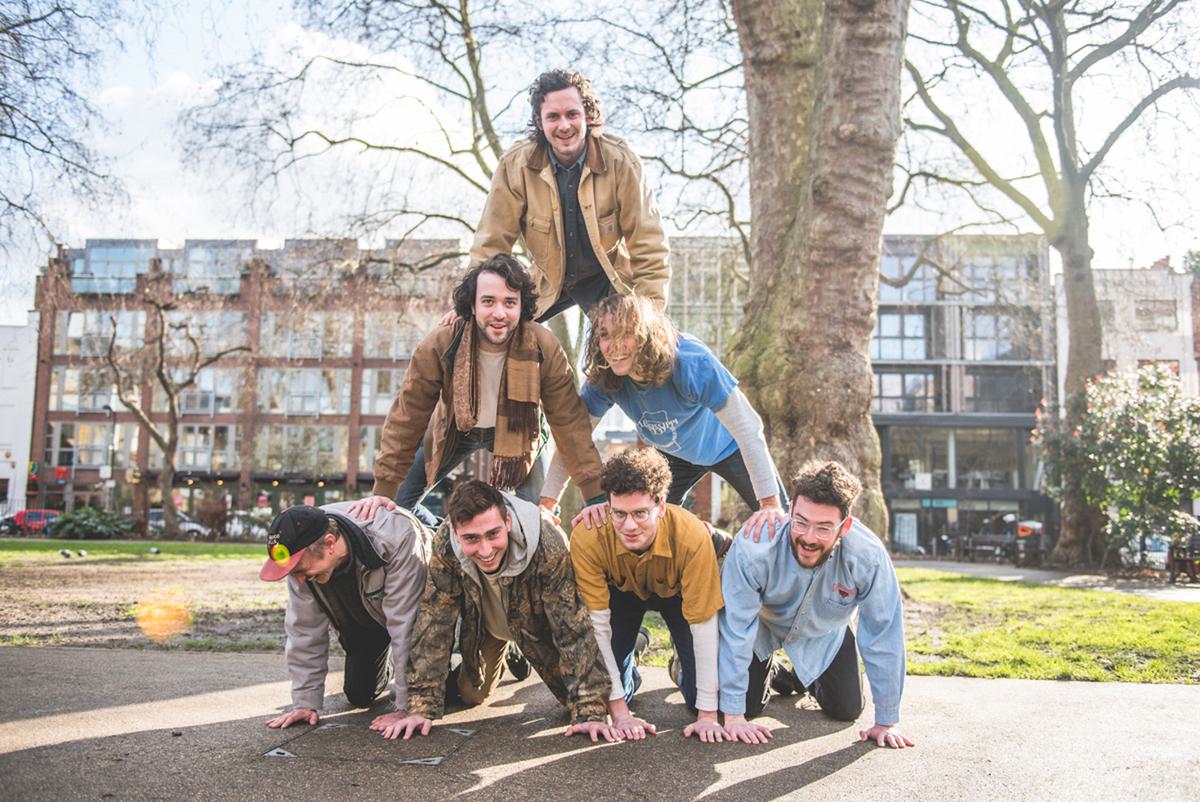
A Change Is Gonna Come
18 months ago, the members of Whitney were at an all-time low. They talk to Sam Briggs about the moving story of transition that produced one of this year's best debuts.
Backstage, in the green room of Whitney’s first London show, there’s a problem. In the surroundings of Hackney’s Moth Club – walls plastered with veteran memorabilia and the support act’s jumpsuit draped over a sofa – the singer about to play one of the year’s most anticipated shows to date has lost his voice.
There are plenty of guttural growls that grace this venue for which this would only be complementary, but for Julien Ehrlich, whose soulful falsetto lilts in octaves most of us haven’t touched in a decade, the tension is palpable. Somewhere between the furious anticipation of the fans and industry in the room below, a fast-approaching stage time and a severe touring schedule sits a visibly flustered, gently rasping frontman. But, to the rescue of everyone’s heightened emotions, arrives keys player Malcolm Brown. Taking Ehrlich aside, with his arms on his shoulders, he comes up close to his face and breaks into an upbeat rendition of the band’s next single-to-be, “Golden Days”. Before long, it becomes an embrace, then a kind of pepping-up inter-band cuddle and within a couple of minutes a jubilant example of the warm camaraderie that’s winning the band devoted fans the world over.
“I was pretty fucked up last night,” Ehrlich smiles. “This has happened twice in the lifespan of our band, where we completely lose consciousness before a show. When we look around, fucking exhausted, and all we knew was each other.” It’s the evening after, and we’re sitting in light rain on the roof of Shoreditch House (“everyone here is beautiful, I don’t know what to do…” jokes guitarist Max Kakacek) watching the steam rise off a swimming pool. They’re about to play their third London show in three days, and the bizarre setting isn’t lost on any of us.
“Last night, a couple of times, I went into a kind of completely jet-lagged half drunken thing where I didn’t know where I was. You know those terrible rom-com or action movies where someone’s looking around a bus terminal, and the camera’s moving super fast everything around them? I’m guessing by the end of the year that’s going to happen a few more times,” agrees Kakacek. “That’s going to be our brains, always”.
By now, they’re used to having each other to lean on. As for the seven members of Whitney – alongside Ehrlich, Kakacek and Brown are Will Miller on the trumpet, second guitarist Print Chouteau, in-house sound guy Charles Glanders and Josiah Marshall on the bass – the line between band and family is long dissolved; whether it’s co-habitation in their hometown of Chicago (“we don’t have apartments any more though, so you know…anywhere!” jokes Kakacek), their on-stage snogging antics, or a lakeside communal skinny dip (“we didn’t stare at each others’ peens or anything,” Ehrlich shrugs).
In the middle of a whirlwind of both personal changes and buzzy expectations, the band and the best friends in it give each other something solid to clutch onto. An hour in their laid-back company and you feel like handing in your notice and forming a band – whether it’s laughing about jenkem, discussing the benefits of long johns with or without buttflaps, or discussing country documentaries (Heartworn Highways, check it), their infectious presence makes the whole thing seem pretty fun. And when they’re talking about their music, their sincerity and passion is obvious, unpretentious and genuine.

Though according to the group’s central songwriting duo, things looked very different 18 months ago. Both working humdrum jobs in one of the harshest Chicago winters on record, Ehrlich and Kakacek found themselves doubly alone: both freshly heartbroken, and in the midst of the 2014 disbanding of the band they both played in – the wistful glam-pop of Smith Westerns.
“Last winter was the most depressing shit of all time. We were going through some weird shit, we were homeless for a little while, and shit was pretty weird,” Elrich explains. “We were in and out of tumultuous breakups that dragged on for fucking ever…I think both of our first loves, and only true loves so far.” Although they were both working on solo projects – Kakacek on “insane, crazy LA 80’s pop” and Ehrlich with another member of Smith Westerns – that their hearts weren’t really into, they talk about the importance of that time in purging curiosities in their system, to prepare space for what would become Whitney. When Kakacek showed up at the apartment they were living in with a small tape machine, they had the first track almost immediately.
"We started with the idea of making a record under a guise – some old John Denver kind of dude named Whitney – but like three songs in we realised that we were writing songs about shit we really cared about.” - Julien Ehrlich
“We just realized when we made that first song on the tape machine that we had to throw all those other songs out,” he explains. “We were living at an apartment where people just showed up every night. We wouldn’t call anyone but our lock was broken, so five or six people would just file in – hanging out, smoking cigarettes or whatever. When that flux of people came in, we’d just written that song, and after a few drinks we were feeling a little confident, and played this demo that sounds like…the most jankiest song. It ended up on the record, but the original demo was fucking crazy. If I was one of our friends who came there, I’d be like ‘what the fuck is this thing you’re playing me!’ but even when we heard that iteration of the song, we heard what it could become.”
For a short-lived time, Whitney was intended as more than “just a bandname”. In Ehrlich's words, “we started with the idea of making a record under a guise – some old John Denver kind of dude named Whitney – but like three songs in we realised that we were writing songs about shit we really cared about.”
“It’s not necessarily that Whitney was a set person necessarily, it was just a tool to help us get out of our own heads,” Kakacek adds. “When you get too close to a song, it’s hard to tell when it’s done. It was our way of creating from a different space. In our first interview – I love Fader, but they quoted me as saying ‘he’s just some old-ass dude.’ It’s come back up multiple times and it’s my least favourite quote I think I’ve ever said”.
Is it true that it was the name of your first kiss too, I ask?
“That is true!
She fucking followed us on Instagram, like one of the first twenty people to do it. We posted our first show poster that said Whitney, and she liked it. I think she’s fucking married with kids. We should have played her wedding”.
Both songs from those early sessions survived – the first in the form of “Dave’s Song”, written about the 350-pound thug with Tupac tattoos and a ponytail who lived downstairs – but it was with the third song, “Golden Days”, that everything changed.
“To me, ‘Golden Days’ is the song we both sent our ex-girlfriends after we made it,” Kakacek explains, “to get some kind of closure. I remember sending it to her and she just started bawling. It wasn’t even in a sense of getting back together, more like – I sent you this, and now we can be friends, and everything’s cool”.
It’s one of the most moving things about the band’s music that the intentions behind a song being made can resonate with you so strongly when you listen to it for the first time. “Golden Days” feels simultaneously soaked in melancholy and relentlessly carefree, gently unfurling in the way that the best ‘road’ music does – less concerned with destination, and more with capturing the bittersweet, romantic sense of roaming that jumping in a car with nowhere to go can give you. It’s the moment that came to Ehrlich and Kakacek at a mutual low point, surrounded by change, and has flourished into their defining constant since: Whitney.
Fast-forward to 2016, and the band are preparing to release their first record, Light Upon The Lake. You won’t hear a better debut this year. It’s reminiscent of another banner record released on Secretly Canadian, the War On Drugs’ Lost In A Dream, in the sense of the feeling that the making of the record wholly emotionally consumed the person making it. They’re both engrossing products of obsession, loss and, at times, deep loneliness, but they carry one crucial difference: where LIAD feels like a cathartic full stop to a desperate emotional state, Whitney’s debut has the spirit of ellipsis.
It’s an honest, beautiful record about the feeling of transition between one emotional state and another – unconsciously burdened with the nostalgia of leaving something behind, but emerging out the other side fizzing with the possibility of the new unknown. Where Granduciel’s record wallows, Whitney’s is already reversing the car out the driveway – not art just about sadness, but about the escape that can cure it. It feels more limber, more like a daydream than a lucid nightmare: an album half written in the heart of winter dreaming of sun, and half reminiscing on the past in the throes of a glorious summer. At ten relatively short songs, it’s a lean record – but the powerful sense of shifting sands makes it feel hugely cinematic.
“We wrote some of these songs in a really terrible winter, and some in a really happy summer, but we were kind of dreaming about beautiful shit the whole time, taking trips to Oregon. Chicago can get pretty desolate.” Ehrlich goes on to talk about the album’s Nico-esque title track that feels like an emotional coda for the process: “It was the last song that we wrote, and it kind of encapsulated everything. It kind of put a punctuation mark at the end of the transition we were going through. The lyrics can be interpreted as being about the breakup of the last band, or the relationship we were going through, but it stood out. It’s still my favourite song, I think.”

Both Ehrlich and Kakacek are open about being country folk – and the unleashed, bucolic nature of a rural outlook only intensifies the album’s daydream quality. “I dream pretty much daily of settling down in the country with a girl,” jokes Ehrlich, before his counterpart adds: “I think it’s definitely fair to say we’re into being outside and seeing pretty things that aren’t buildings”.
True to form, the band went to make the record with Foxygen’s Jonathan Rado, in a self-proclaimed “no man’s land” in the San Fernando Valley – eating in the same diner every day, and sleeping outside at night when the 100-degree temperature softened. Although the songs were complete before they went, Rado’s influence as engineer seems to have intensified the intuitive ‘vibe’ element of the record.
“He does this weird thing where he squints his eyes when you’re playing, holding a knob and turning it until he thinks it sounds good, and then says – it’s done!” laughs Kakacek. “I shouldn’t say this but…that studio is just a cloud of smoke. Actually, he said he was down with us saying it as long as we say there we ‘no bongs’. He just doesn’t want to be associated with bongs.”
Musically, Light Upon the Lake is a masterclass in citation that makes it feel timeless: a warm-hearted, wistful blend of sun-dappled Americana, aching country and woozy slacker-rock. When asked about songs they felt influenced the record, they talked excitedly about Jim Ford’s “It’s My Life” and the Band’s “Whispering Pines”, and the tour van’s strict three-strikes policy (“three bad songs, and we’ll shut it off immediately”) that only two albums have so far survived –amusingly only an electronic record no-one can remember the name of and Taylor Swift’s 1989.
However, there was one influence that outweighed all others in the making of the record, according to Kakacek: soul.
“A lot of the things I didn’t like about the previous band I was in, was I felt it lacked a certain sense of soul. I’m so happy that in this band, people catch onto the soul. I feel it’s what people connect to.” Ehrlich agrees: “The previous band was pretty…white. There’s no better way to say that.”
“We were putting ourselves into the songs as deeply as we could,” Kakacek continues, “especially with Julien in the lyrics, giving everything – like the grandfather stuff [the last song on the record, “Follow”, was written about Ehrlich's grandfather who died during the making of the album] – making things more emotional and personal. We were talking about the way [soul musicians] do emotional songs – a few of the songs I like a lot on the record have this kind of…not disconnection, but the music seems happy, and the lyrics are way more darker”.
"I’m so happy that in this band, people catch onto the soul. I feel it’s what people connect to." - Julien Ehrlich
“Don’t be afraid to cry, I guess,” adds the frontman. “Don’t be afraid to feel shit.” The final product shows the hallmarks of its hometown in more ways than just the cold – with the emotional clarity of Sam Cooke and Curtis Mayfield lending a bit of sensitivity.
There’s one trope of modern music they were keen to avoid, however: “We’re pretty tired of reverb bands, we’re actively avoiding that. All these songs are aimed at the heart – sentimental, catchy soul songs. They’re really upfront, all the lyrics and vocals aren’t buried under reverb or delay. Honestly, those two things completely change the way you record and write. Even though they seem somewhat small, they’re overused heavily.” It lends the songs the honesty of the country acts they admire, rather than the modern equivalents that gets readily written off: “People write off country, modern pop country, and don’t dig into its history. There’s some really good music in there and we want to help people find it”.
By restricting themselves from atmospheric studio trickery, the duo focused fully on melody, and as a result, the record feels doused in it. Rather than building a song around one hook, every texture – be it Kakacek's perfect guitar lines or a crooning trumpet – feels instantly catchy, without ever feeling crowded. Like the bunch of roses on the album’s cover, each element is given room to flourish in its own space, gloriously intertwining into a compact whole that feels much more than the sum of its parts. They’re at the same time intricate songs you can get lost in, and complete hits – none more so than latest single “No Matter Where We Go”, if not the single of the year, then at least the dazy song of the summer.
No accident, says Ehrlich, who although played drums in previous bands (and continues to carry the sticks in Whitney), has always had an ear for a hook: “I’ve actually always had the mentality of a singer, and I’ve always written melodies in my head. I just love melodies and I hope that comes through on the record. There’s a true melody for every song, I think”.

Although the duo are far too polite and positive to dwell too much on the topic of those past bands, they make a point of not actually referring to Smith Westerns by name – in interview, they’ll jokily correct each other with “the previous band”. They’ve both referred to the band’s breakup as mutual, but any seven year relationship leaves scars – on both sides, with Cullen Omori, former Smith Westerns frontman, signing off his own recent London headline show with “thanks for coming, fuck Whitney” (albeit in jest). Allegedly, Ehrlich literally moved into Omori’s bed when he moved out of the apartment he was sharing with Kakacek.
This time round, they’re a little older, a little wiser, and ego-free – and taking cues from Ehrlich's other ‘previous band’, Unknown Mortal Orchestra. “They’ve just done it right, in my opinion, in terms of the business model and how hard working they are. That’s what I want this band to do – our music isn’t really inspired by UMO, but they just work really fucking hard, and they are where they are because of it. In Smith Westerns, that wasn’t on the cards, maybe. Personalities and shit.”
The record was written collaboratively, whether it’s pacing around in concentric circles through the arches of traditional Chicago one-room dining room and living room, picking over every line until something clicks, or in the rustic remove of a Wisconsin cabin. Consequently, Light Upon the Lake is a vivid rendering of the experience of the seven people that made it, painting a period of transition – grandparents dying, relationships ending – in warm colour.
As the rain picks up, Ehrlich and Kakacek retreat into the heavy wood paneling and warm light of the members’ club downstairs to join the rest of the gang, who together look like a Wes Anderson imagining of a dysfunctional, boyish scout group, long past their graduation date. With the band on-tour until pretty much Christmas, there’s plenty more change to come for this band on the cusp of something great – so lend them your sofa. For now, light a cigarette, cling a loved one close, and get lost in the moving time capsule that is Light Upon the Lake.
Get the Best Fit take on the week in music direct to your inbox every Friday
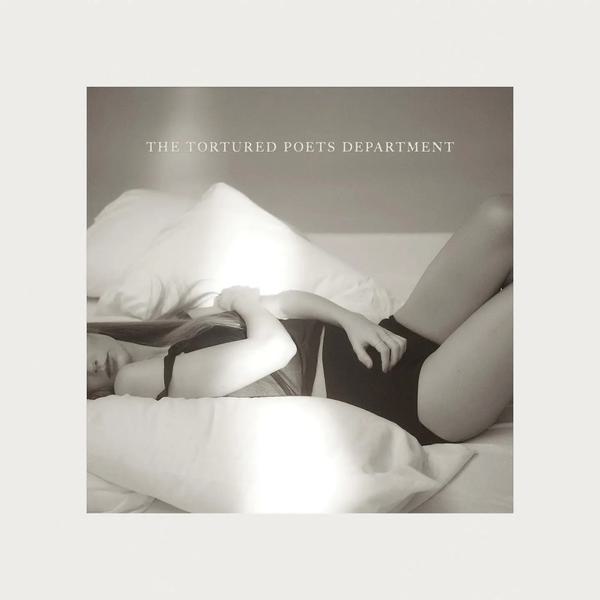
Taylor Swift
The Tortured Poets Department
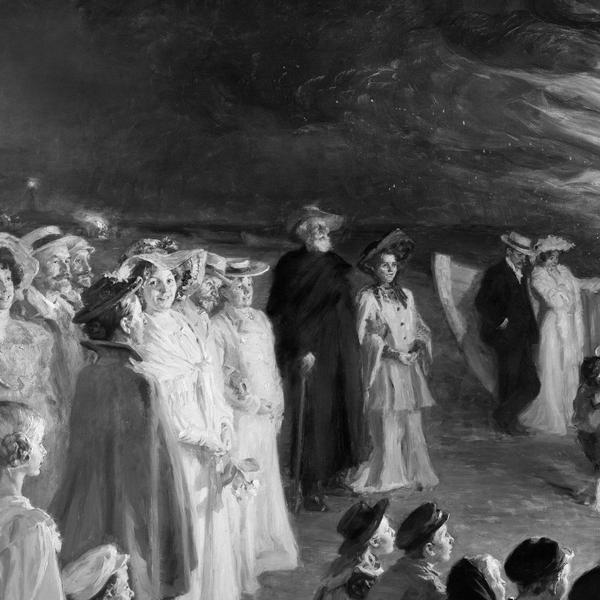
Chanel Beads
Your Day Will Come
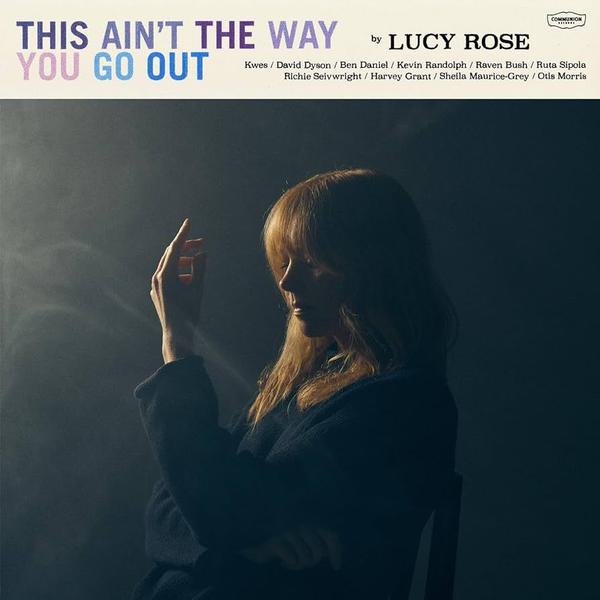
Lucy Rose
This Ain't The Way You Go Out
